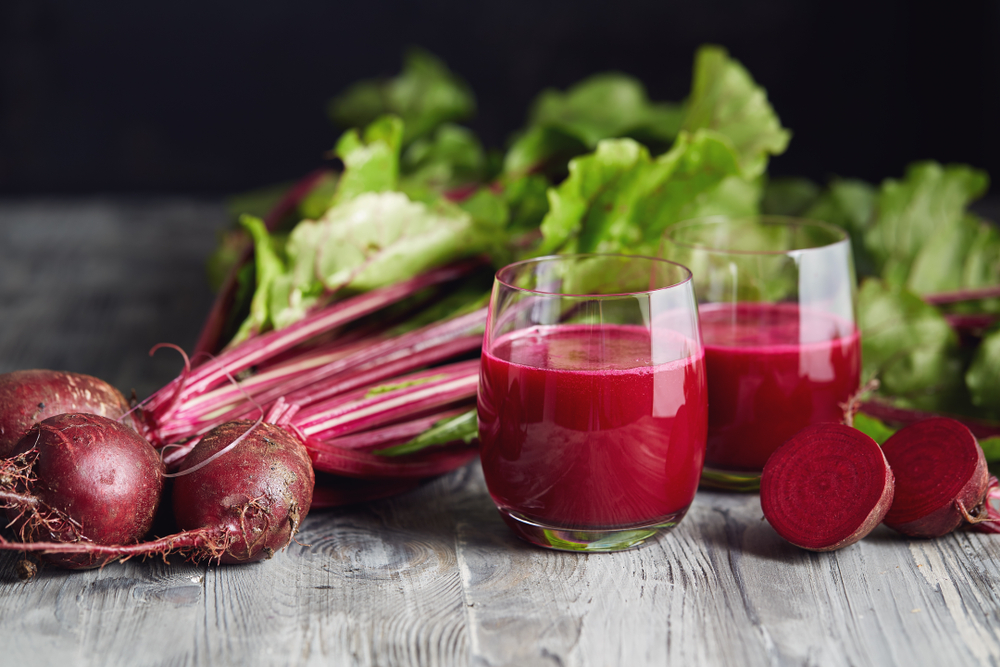
Five Great Reasons For You to Start Including Beetroot in Your Diet

Beetroot is sometimes used to make salads, drinks, brownies, canapés, and in other delicious meals. This excellent root vegetable’s nutritional profile includes several essential vitamins, antioxidants, and minerals. Let’s look at some benefits of beetroots and why you should include them in your diet.
Beetroot can help lower blood pressure.
According to research by PubMed, beetroot juice might help control blood pressure in pre-hypertensive people, healthy subjects, and patients diagnosed and treated with drugs. The effect appears more noticeable for systolic blood pressure (when your heart contracts) than diastolic blood pressure (when your heart is relaxed). Root vegetables like beetroot have a high concentration of nitrates that convert into nitric oxide (molecule), which dilates blood vessels and lowers blood pressure levels. Higher concentrations are in raw beetroot. The impact of beetroot on blood pressure is temporary, so you need to consume them regularly to experience heart-health benefits.
Beetroot may improve digestive health.
Dietary fibre can help normalise bowel movements, promote bowel health, lower cholesterol levels, and manage blood sugar levels. Beetroots contain soluble and insoluble fibre making them fibre-rich foods. One cup of beetroot contains 3.4 grams of fibre (raw serving). The body does not digest fibre; instead, it passes through the stomach, small intestines, and colon, where it adds bulk to stool. Fibre improves digestive health by reducing the risk of digestive conditions like constipation, diverticulitis, and irritable bowel disease (IBS).
It can help with inflammation.
People who struggle with ongoing inflammation in the body are at risk for diseases including high blood pressure, asthma, obesity, heart disease, and Type 2 diabetes. Beetroot contains bioactive compounds called betalainsthat give beets their colour and provide anti-inflammatory, antioxidant, and detoxification support. Since beets are also rich in nitrates, which reduce inflammation, the combination of betalains and nitrates can positively impact people with inflammatory conditions (rheumatoid arthritis, fibromyalgia, etc.).
Beets might help reduce the risk of heart disease.
Since beetroots can lower blood pressure, they may lead to a reduced risk of heart disease and other ailments. Beets are rich in folate (vitamin B9), which helps cells grow and function. Folate plays a crucial role in controlling damage to blood vessels, thus reducing the risk of heart disease and stroke.
Coronary heart disease is the most common cause of heart attacks. The body naturally produces nitric oxide, which is crucial for good health. In addition to regulating blood pressure, nitrates have significant anti-inflammatory effects, making beets a good source in reducing the risk of heart disease.
Beetroots can increase stamina and energy.
The benefits of nitric oxide from beets include increasing muscle blood flow. Dietary nitrates can reduce oxygen use during exercise by impacting the efficiency of mitochondria (cell organs responsible for producing energy). Consuming beetroots may increase stamina, boost oxygen use, and improve cycling and running performance, resulting in better exercise performance. Some athletes drink beetroot juice or eat beets to enhance workout performance.
What else should you know about beetroots?
Since beets are high in oxalates that might cause kidney stones, balanced consumption is encouraged. Oxalates can lead to gout (a type of arthritis). So, eat beets sparingly or avoid them if you’ve had kidney stones or wish to minimise the risk of having gout. Lastly, beets can cause your stool to appear red; however, this results from its red pigment, so don’t be alarmed.
Are you ready to try a recipe that uses beetroot?
Some beetroot juice or a yummy beetroot salad is relatively easy to make. Please use Find Yello for supermarkets, wholesalers, or related businesses with the necessary ingredients and other items you might need.
Sources: Healthline, WebMD, The Guardian, and Medical News Today.
By Carolyn Lee
Carolyn Lee is a Content Feature Writer for Yello Media Group of which Caymanrestaurants.com is a subsidiary, and this article originally published on Findyello.com in October 2022.
